Council to talk taxes: Breaks for drivers, homeowners and businesses on agenda this week
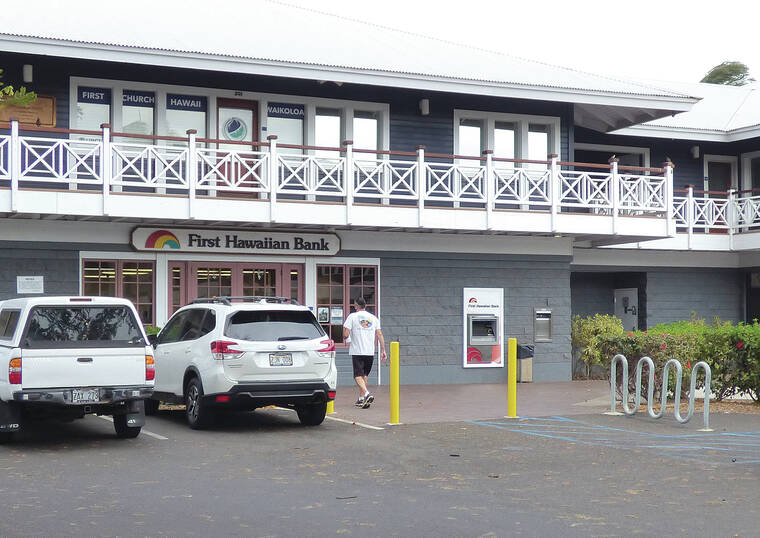
A man walks toward First Hawaiian Bank in the Waikoloa Highlands Shopping Center. The Hawaii County Council will also consider Bill 156 capping the value of property classified as apartment, hotel and resort, commercial, industrial, agricultural or native forests, or conservation at 15% of the previous year’s assessed value for that property. (Chelsea Jensen/West Hawaii Today)
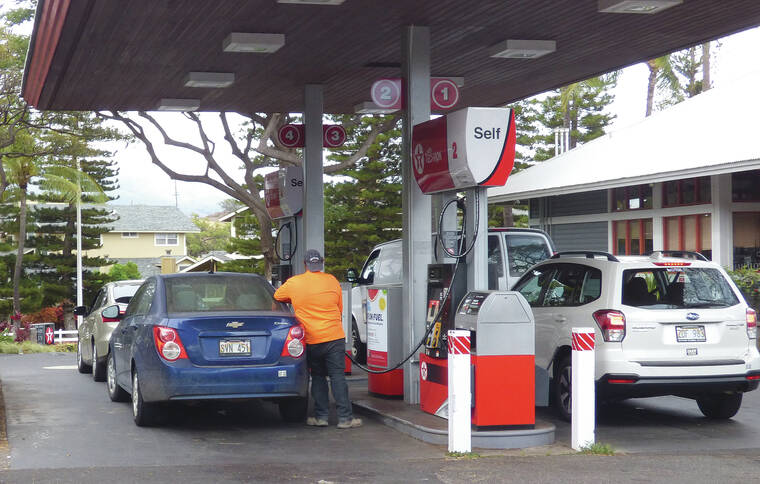
Motorists fuel up Monday afternoon at the Texaco gas station in Waikoloa Village.
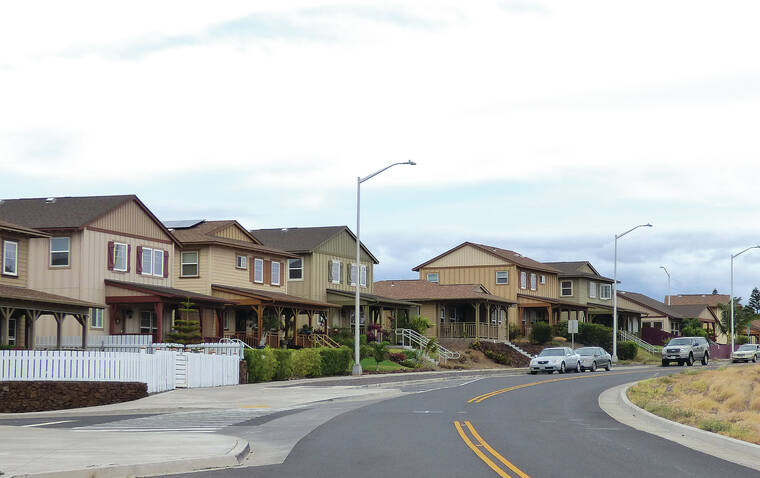
Homes line Iwikuamoo Street in Waikoloa Village on Monday. The Hawaii County Council will consider Resolution 291, postponed from a January meeting, authorizing the finance director to issue a $250 credit to be applied to the August real property tax bill of property in the homeowner’s class today. (Chelsea Jensen/West Hawaii Today)

Kanealii-Kleinfelder
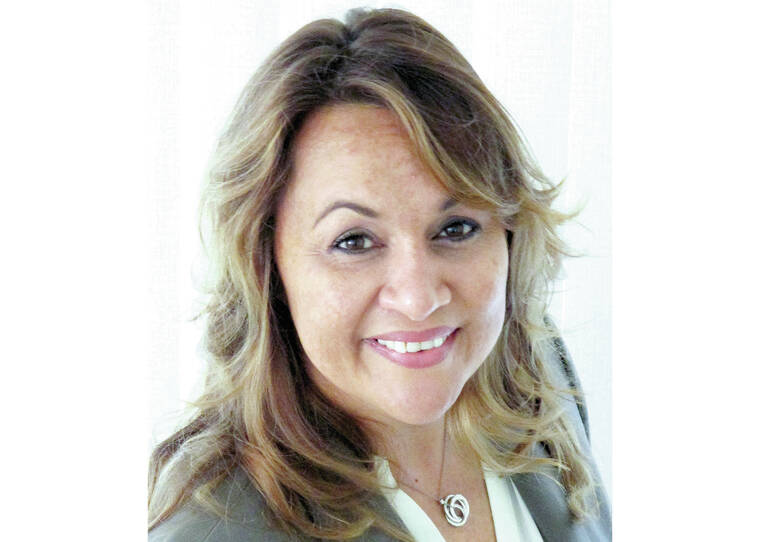
LEE LOY
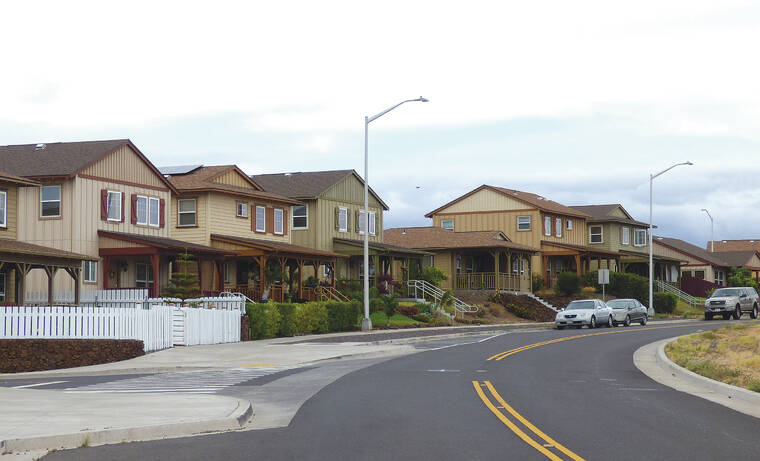
Homes line Iwikuamoo Street in Waikoloa Village on Monday. The Hawaii County Council will consider Resolution 291, postponed from a January meeting, authorizing the finance director to issue a $250 credit to be applied to the August real property tax bill of property in the homeowner’s class today. (photos by Chelsea Jensen/West Hawaii Today)
It’s going to be a taxing week for the Hawaii County Council.
It’s going to be a taxing week for the Hawaii County Council.
Resolutions lowering gas taxes by a dime a gallon and granting homeowners a $250 credit on their property taxes, as well a bill capping property values for other classes of property, will all be considered by the council today and Wednesday.
Taxes are top of mind for many islanders because property values skyrocketed in the continuing hot housing market, and gas prices are at near record highs.
Property tax revenue, based on the latest valuations at the current tax rate, are expected to go up 12.9% or by $45.9 million, according to the $689.9 million preliminary proposed budget Mayor Mitch Roth released March 1. But because property in the homeowner class is limited to a 3% valuation increase annually until it’s sold, it’s expected that the other property classes will bear the brunt of that increase.
Hilo Councilwoman Sue Lee Loy has proposed two measures to help property owners weather the sharp increases in two bills to be heard by the council Finance Committee at 10 a.m. today at the West Hawaii Civic Center. The public can participate there, in the Hilo council chambers or in the Pahoa or Waimea council offices.
Resolution 291, postponed from a January meeting, authorizes the finance director to issue a $250 credit to be applied to the August real property tax bill of property in the homeowner’s class, except for those that failed to pay any portion of due taxes, properties assessed at the minimum tax rate, or properties sold during the taxable year.
The resolution, if forwarded out of the committee and passed after one hearing by the council, does not require the mayor’s approval to go into effect.
County Finance Director Deanna Sako told the council earlier this year there are an estimated 33,000 homeowners on the island who would be eligible for the credit, which is estimated to save homeowners and cost the county about $7.7 million.
Bill 156 caps the value of property classified as apartment, hotel and resort, commercial, industrial, agricultural or native forests, or conservation at 15% of the previous year’s assessed value for that property. The bill, which requires two council hearings after it’s moved from the committee, would go into effect upon passage and approval by the mayor.
“Bill 156 was developed in collaboration with the business community. It’s a cap on assessed values, similar to what is available to homeowners and affordable rentals; albeit it’s higher, at 15%,” Lee Loy said Monday. “However, it allows property owners in the respective classes to plan and adjust accordingly. It’s a circuit breaker that provides a safety net for our economy to recover. Without it, businesses will be forced to raise prices, pass along the costs or shut down.”
Properties in commercial, industrial and hotel/resort categories have increased as a result of movement in what is typically a fairly stagnant market. Some longtime business owners decided to close during the height of the pandemic, sparking a reappraisal of property that resulted in higher values, Deputy Finance Director Steve Hunt told the council last week.
“I think what this really represents is a catch-up,” Hunt said.
The third measure, Resolution 363 by Puna Councilman Matt Kanealii-Kleinfelder, will be heard by the council Wednesday, after receiving a dim reception at the committee level, and forwarded on a 3-5 vote. It reduces the County of Hawaii fuel tax for diesel on-highway and gasoline on highway fuels from 23 cents per gallon to 13 cents per gallon. It also doesn’t need the approval of the mayor and, if passed by the council, would take effect on the first day of the second month following the date of adoption, or, at the earliest, or June 1.
Prior to Wednesday’s hearing, the council has scheduled a public hearing for 5 p.m. this evening. The public can testify there or at the beginning of the council meeting Wednesday.


